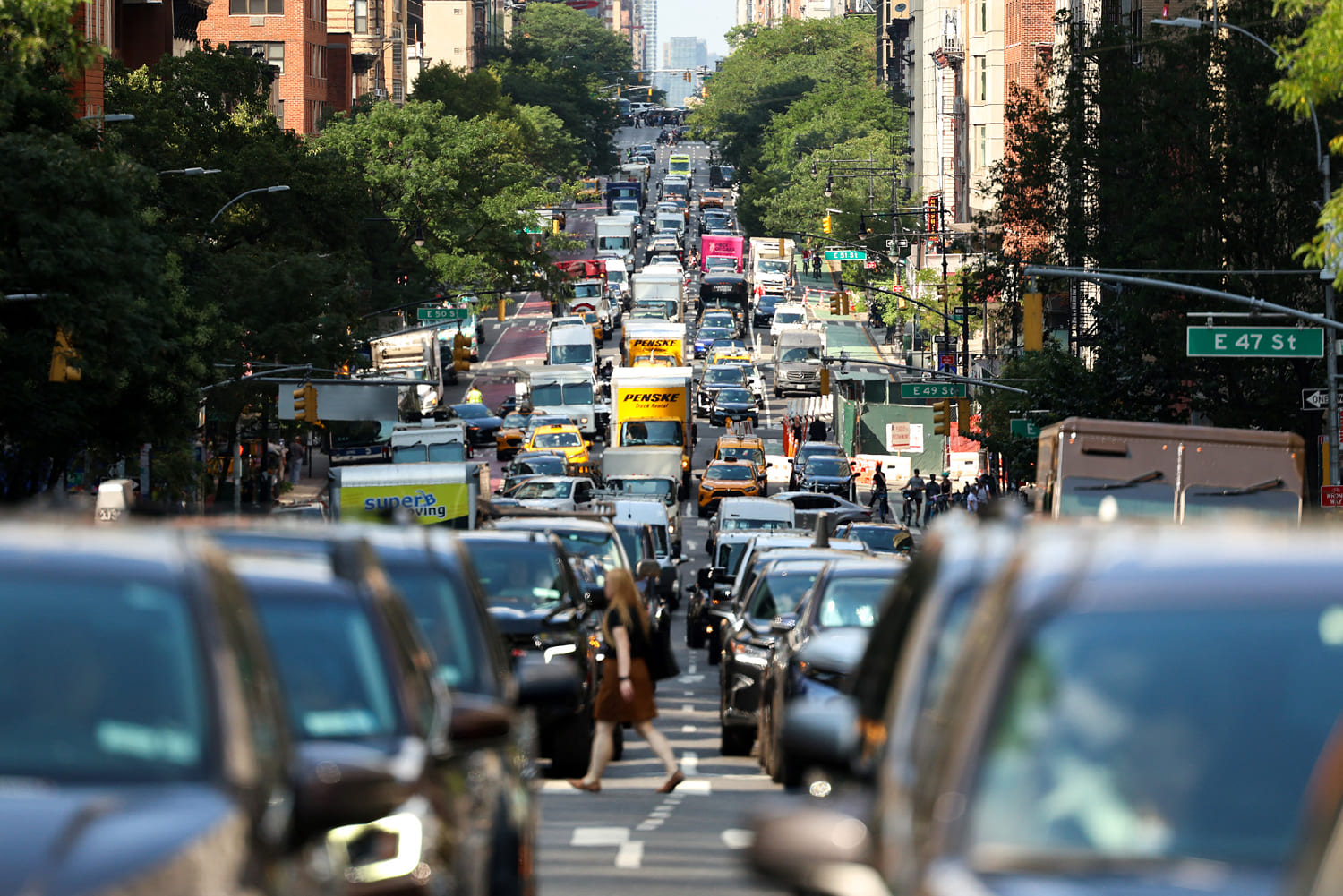
People whose homes are near busy highways may be able to reduce their blood pressure by running an air purifier with a HEPA filter, a study found.
Just a month of air filter use cut systolic blood pressure by nearly 3 points in healthy adults who had slightly elevated blood pressure, according to the report published Wednesday in the Journal of the American College of Cardiology.
Doug Brugge, the study’s lead author and professor and chair of the department of public health sciences at UConn Health in Farmington, acknowledged that 3 points may sound like a small reduction.
“But the medical literature shows that even at that magnitude there can be a meaningful benefit in terms of reducing the risk of serious cardiovascular outcomes, such as heart attack and stroke,” he said.
Nearly a quarter of Americans live near busy roadways, according to the new research. People may not realize they’re being exposed to traffic-related air pollution because it’s invisible, odorless and can be easily missed, Brugge said. Yet high levels of the tiniest particles found in traffic-related air pollution are known risk factors for developing high blood pressure and heart disease.
Blood pressure is measured with two numbers: systolic pressure (the top number) and diastolic pressure (the bottom number). A reading of less than 120/80 mm Hg is considered normal.
Almost half, or about 119.9 million, of adults in the U.S. have hypertension, or high blood pressure, according to 2023 estimates from the Centers for Disease Control and Prevention.
To determine whether simply installing two portable, commercially available air purifiers with HEPA filters could improve heart health, Brugge and his colleagues sought healthy volunteers whose homes were near roadways that would expose them to elevated levels of the tiny particles from vehicle emissions, as well as particles associated with tires and brakes.
The researchers randomly assigned 154 volunteers to two groups. One would have two HEPA filters in the most commonly used rooms in their homes — one in the living room and the other in the bedroom. The other would be given sham filters. Then the groups would be switched.
After a month of living with HEPA filters, volunteers who had slightly elevated blood pressure at the beginning of the study saw a 2.8-point drop in systolic blood pressure, the top number that the American Heart Association considers the strongest predictor of future heart problems.
In contrast, those living with the sham filters saw a 0.2-point drop.
People with normal blood pressure did not see an effect from HEPA use.
The type of air filters used in the study were comparable to ones consumers can easily purchase in a store or online, Brugge said.
The new study is “intriguing,” said Dr. Matthew Alexander, an assistant professor of medicine in the division of cardiovascular medicine at the Vanderbilt University Medical Center in Nashville, Tennessee.
Not everyone’s blood pressure changed, just those with systolic pressures over 120 at the outset, Alexander said. “It was a modest effect, but a clinically significant one,” he added. “And it would correspond to about a 6% reduction in the risk of adverse cardiac events, such as heart attacks, strokes or cardiovascular death.”
Alexander would like to see more studies, ones with more participants and a wider range of blood pressures.
As would Steven Chillrud, a pollution expert and a research professor at Columbia University’s Lamont-Doherty Earth Observatory in Palisades, New York.
It’s likely that filtering would help even people who don’t live near roadways since traffic isn’t the only source of air pollution, Chillrud said.


